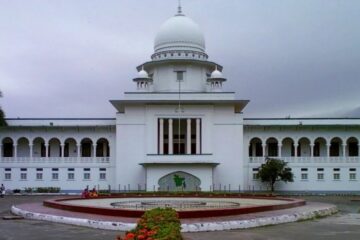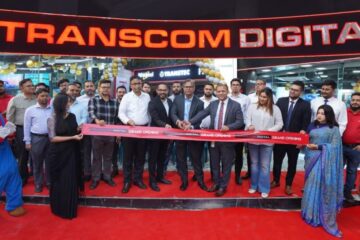The voting for the Chittagong University Central Students’ Union (Cucsu) and Hall Union elections has begun.
On Wednesday, it started at 9 am and will continue until 4 pm. Afterwards, the results will be announced following the counting.
A tight security system has been arranged across the campus, centering on the election. A large number of law enforcement personnel have been deployed.
Md Nayeem Hossain, a student of Chittagong University, said, “A huge number of students are participating in the election. We hope it will be held peacefully and that deserving candidates will be elected.”
Chief Election Commissioner Professor Dr Monir Uddin said: “All preparations have been completed for the Cucsu election. Voters will be able to cast their votes for their preferred candidates without any hindrance.”
After 35 long years, the Cucsu and Hall Union elections are going to be held for the seventh time. Since the establishment of University of Chittagong in 1966, student union elections have been held only six times.
Among these, the first election was in 1970. The most recent one was in 1990.
Therefore, none of Wednesday’s voters had the chance to witness a previous union. Although according to the Chittagong University Act, 1973, Cucsu and Hall Union elections were supposed to be held annually, they were not.
The total number of voters in this Cucsu election is 27,516. There are 26 positions, including VP and GS, in the central union. There are 14 positions in each of the 15 hall and hostel unions. 908 candidates are contesting for these positions.
Among them, 415 candidates, including 13 panels and independent candidates, are contesting for the central union. Voting will take place in 60 rooms of 15 polling centres across 5 faculty buildings.
In the Chittagong University Central Students’ Union election, the number of positions is 26, and the total number of candidates is 415. Among them, 368 are male and 47 are female. Currently, the university has 14 residential halls and 1 hostel. Of these, nine are for male students and five are for female students.
Apart from this, there is the Shilpi Rashid Chowdhury Hostel. Each of these 15 residential units will have one polling centre in this election.
There are 206 positions in 14 halls and 1 hostel. Each hall has 14 positions. The hostel has 10 positions. The total number of candidates is 493. Among them, 350 candidates are from 9 male halls and 123 candidates from 5 female halls. Besides, 20 candidates are contesting in the Shilpi Rashid Chowdhury Hostel.
In the Cucsu election, voters will cast a total of 40 votes, combining the central and hall union. Among these, 26 votes are for the central student union, and 14 votes are for the hall union. The maximum time allocated for casting these votes is 10 minutes. Therefore, on average, a student will have to cast one vote every 20 seconds. However, the Election Commission has stated that voters will be able to cast their votes, taking adequate time.
Chief Election Commissioner Professor Dr Monir Uddin said: “We have estimated that it will take about 10 minutes for one voter to cast votes for a total of 40 positions, including the central and hall union. However, there is no time limitation from our end. Voters can cast their votes, taking as much time as they need. We hope they will vote, taking the time they require.”
Voting in this election will be done on ballot paper. Counting will be conducted through OMR (Optical Mark Reader) method. In this method, voters will vote by filling in circles.
Regarding the result announcement, results for the central union will be announced from the Faculty of Business Administration, and results for the hall union will be announced from the respective centres.
Chief Election Commissioner Professor Dr Monir Uddin said: “Our voting will be on ballots. After the voting ends, counting will be done through the OMR method. Counting through the analogue method would take a long time. So, we will not use that method.”
He said: “Except for the secret booths, all centres will have CCTV cameras. Ballot papers will be printed in the presence of the commission, maintaining maximum confidentiality. The ballot papers will contain a 24-digit security code and a secret code. These can be identified by the OMR machine.”



